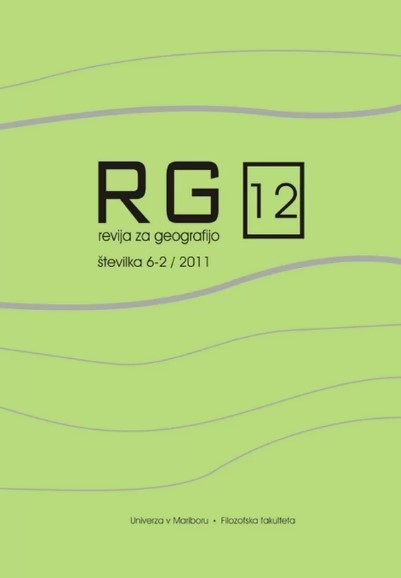Poklicni profili in kompetence s področja varstva narave in okolja za razvoj trajnostne družbe
DOI:
https://doi.org/10.18690/rg.6.2.3839Ključne besede:
trajnostni razvoj, varstvo narave, poklicni profil, kompetencePovzetek
Paradigma trajnostnega razvoja strmi k dinamičnemu ravnovesju med človekom in naravo in zahteva premišljeno ravnanje človeka z naravnimi viri in danostmi našega planeta. Za reševanje naravovarstvenih problemov (izguba biotske raznovrstnosti zaradi intenzivnega kmetijstva, nepremišljenih posegov v ekosisteme; vnos tujerodnih vrst itd.) je potrebno razvijati tista znanja in kompetence, ki omogočajo razumevanje narave in njenih procesov ter hkrati tudi znanja s področja sociologije, psihologije, ekonomije, prava itd. V prispevku bo na kratko predstavljen družbeni pogled na pomen varstva narave ter smernice za oblikovanje ključnih znanj in generičnih poklicnih kompetenc za učinkovito delovanje na področju varstva narave.
Prenosi
Literatura
Brewer, C. 2006: Translating data into meaning: education in conservation biology. Conservation biology 20, 3, str. 689-691. VA. https://doi.org/10.1111/j.1523-1739.2006.00467.x
Cannon, J. R., J. M., Dietz, L. A. Dietz. 1996: Training conservation biologists in human interaction skills. Conservation biology 10, 4, str. 1277-1282. VA.
Dyke, V. F. 2008: On becoming a conservation biologist. V: Conservation biology. Foundations, concepts, applications. 2 izdaja. WheatonCollege, Ilinois.
Kainer A. K. et. al., 2007: A graduate education frame work for tropical conservation and development. Conservation biology 20, 1, str. 3-13. https://doi.org/10.1111/j.1523-1739.2006.00356.x
Kamenščak Hvala, P. 2004: Kompetence: od znanja k odgovornosti in pristojnosti. Vzgoja in izobraževanje 35, 5, str. 12-18. Ljubljana.
Kirn, A.2008: Varstvo narave in kriza napredka. Varstvo narave 21, str. 25-40. Ljubljana.
Kranjec, N. 2010. Ohranjanje narave v osnovnošolski vzgoji in izobraževanju: magistrsko delo. Univerza v Ljubljani. Biotehniška fakulteta. Ljubljana.
Pregled stanja biotske raznovrstnosti in krajinske pestrosti v Sloveniji 2002: Hlad B., Skoberne P. (ur.). Ljubljana, Ministrstvo za okolje in prostor – Agencija RS za okolje. Ljubljana.
Spencer, L. M., Spencer, S. M. 1993: Competence at work: models for superior performance. New York, Wiley.
Svetlik, I. 2006: O kompetencah. Vzgoja in izobraževanje 37, 1, str. 4-12. Ljubljana.
Torkar, G. 2006: Vplivi učiteljevih vrednot na njegovo vzgojno izobraževalno delovanje na področju varstva narave : doktorska disertacija. Ljubljana, Univerza v Ljubljani, Biotehniška fakulteta.
Trombulak, C. S. in sodel, 2004: Principles of conservation biology: recommended guidelines for conservation literature from the Education commitee of the society for conservation biology. Conservation biology 18, str. 1180-1190.
Vocational education and training in Finland. 2003. European center for development for Vocational training, http://www.cedefop.europa.eu/EN/Index.aspx (16. jan. 2010)
Zakon o ohranjanju narave, Uradni list št. 56/1999.
White R. W. 1959. Motivation reconsidered: The concept of competence. Psychological Review 66, 5, str. 297-333. https://doi.org/10.1037/h0040934
Prenosi
Objavljeno
Številka
Rubrika
Licenca
Avtorske pravice (c) 2011 Alenka Sajovic, Karmen Kolnik

To delo je licencirano pod Creative Commons Priznanje avtorstva 4.0 mednarodno licenco.
